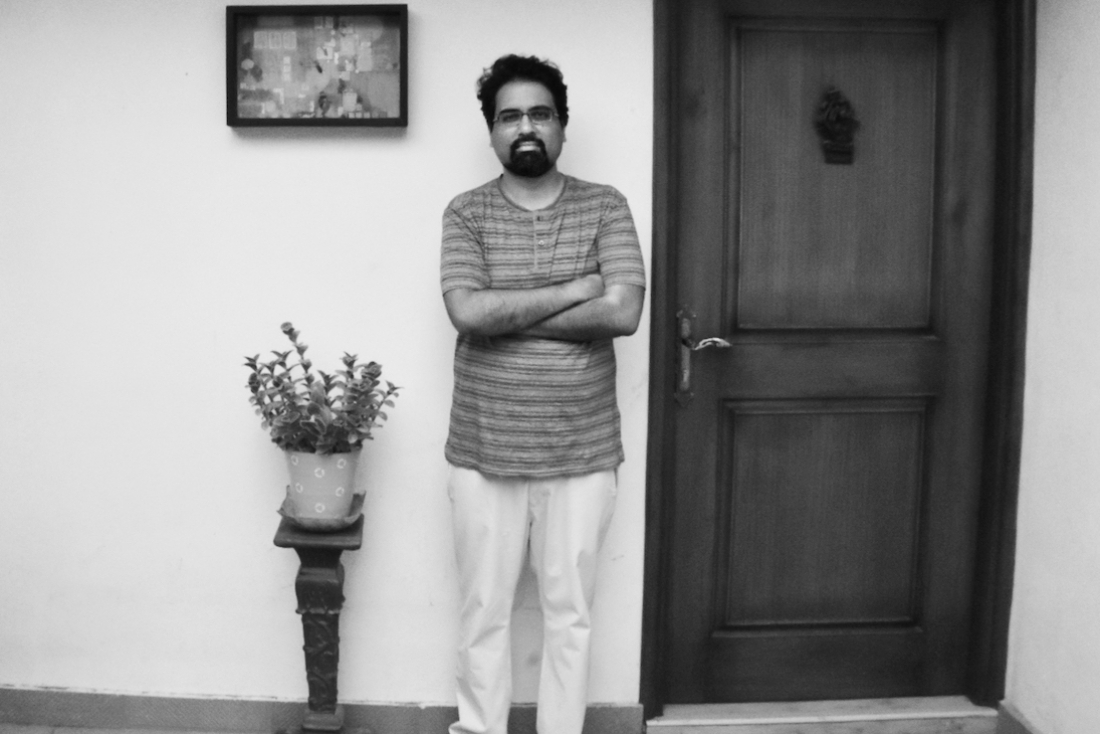
Photography: Priyanshi Jain

Photography: Priyanshi Jain
Kanishka’s corner office off the Delhi Cantonment opens into a peacock garden, lush and inviting. A couch regales in the middle of the room much like the judge’s chair, a seat of precious thought. The shelves are lined with all the books he has worked on, the lights are a discerning shade of yellow and the masala chai is good. It’s the perfect literary setting – but the agent himself, unapologetically temperamental, outspoken and straightforward – is an antithesis of everything we know the quintessential literary agent to be. And that is what makes him interesting. I try and dive into the mind of the book creator who is fast changing the order of publishing in India by going beyond the gatekeepers’ club and believing in unheard voices despite the risks.
The first book you saw and thought – this should not have been published.
Obviously, it had to be a book rejected by our agency. Many of them see the light of day and even end up getting nominated for awards. The book business, especially fiction, is deeply subjective though.
The first time the business of books seemed like just the thing for you to do.
I never had any plans to become a publishing professional. My real ambition was to become a major writer. I got into the business of books right after doing a short internship with another literary agency. I felt I could do a better job, and I think I’ve managed to do just that. I feel the business of books suits my temperament since not all considerations and objectives are necessarily monetary, or truth be told, even rational!
Tell me about the secret life of an agent. The dirt behind the desk (apart from cookie crumbs, of course).
Well, I get to know everything about everyone and everything - the good, the bad, the grotesque. But I never misuse such information or use it to my advantage. I am very wicked but annoyingly harmless.
How do you say no to an author? When do you know it’s a yes?
We don’t even respond to submissions we’re not interested in. In fact, this is clearly mentioned on our website. Whenever we consider a book, solicited or unsolicited, we make it a point to give a detailed reason for rejection. At times, the feedback is brutal so I check with authors if they’re even open to receiving our honest, unedited comments. To my surprise, many of them are.
I’ve been talent spotting for over a decade, so I can spot potential immediately. We don’t like to work substantially with fiction because of the relatively low advances for the genre. Most of my non-fiction comes through recommendations and is authored by senior journalists or domain experts.
Your most important observation about publishing in India vs. the rest of the world (if such a distinction exists)
Nepotism, favoritism and elitism exists in both Indian and global publishing industry. I’ve said this before and I have absolutely no qualms in saying this again. I often joke to my friends that even if I find the next Booker winner from India/South Asia certain sections of publishing and media- especially media- will continue to ignore me because I just don’t fit in.
Having said that, I feel that Indian editors are far more open and receptive to new writing and experimentation. At least, the new generation of editors at the multinationals and respected indies like Speaking Tiger are. I find it quite difficult to deal with UK/US publishers and prefer to route my submissions through established co-agents. In a nutshell, Indian publishing is far more inclusive, adventurous, open minded and humane.
The biggest roadblock in your way – and how you’re zipping past it.
My introversion, opaqueness and temper. Thankfully, I’ve managed to overcome a lot of it. I can be seen at the major festivals, book events, and literary soirees for instance. They’re baby steps but at least a start.
Past the agent and onto the author that is you – what was the biggest lesson you learned from your debut? Now that your next is on its way – how is it a new, evolved creature as you?
The biggest lesson was that one should never publish a work of fiction in haste. This is even more important if it’s a debut because it does have an impact on your future books, no matter how much better they are than your first attempt.
I am taking it very easy with my next book, which is in an entirely different genre and format. I signed a contract with an Indian publisher in 2017, worked on multiple drafts, and have very recently found representation in the UK. Unlike last time, I am going to be very particular about the editing, format, packaging and cover design.
The biggest dilemma you’ve been faced with – human vs. enterprise, while whetting good writing.
Whether or not to say no to a very good book just because it’s about Darjeeling, or wild elephants, or by an author who is no longer alive to do a Facebook live.
Who are some of the new authors ahead that one must look out for?
Numair Atif Choudhury, Sharbari Zohra Ahmed, Shubha Mudgal, Avni Doshi, Rijula Das, Ipshita Nath, Lavanya Lakshminarayan, Varun Thomas Matthew Tripurdaman Singh, Maaz Bin Bilal, Anmol Malik, Murali Menon, Amish Raj Mulmi, Vineet Gill… the list is never ending.
Where’s the business of books headed – in print, multimedia and artificial intelligence?
Print is going to be around unless the world runs out of paper and ink. I don’t think e-books have managed to make much of a dent in the share of printed books. Mobile books were dead on arrival. I believe audio books are doing better if not well.
Text Soumya Mukerji